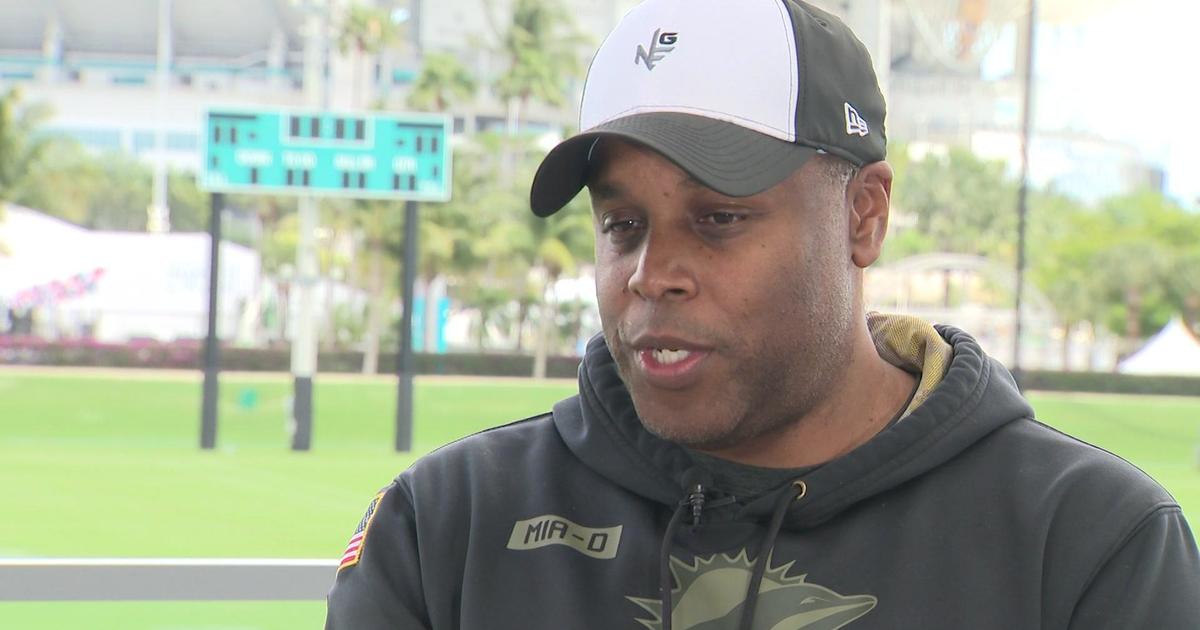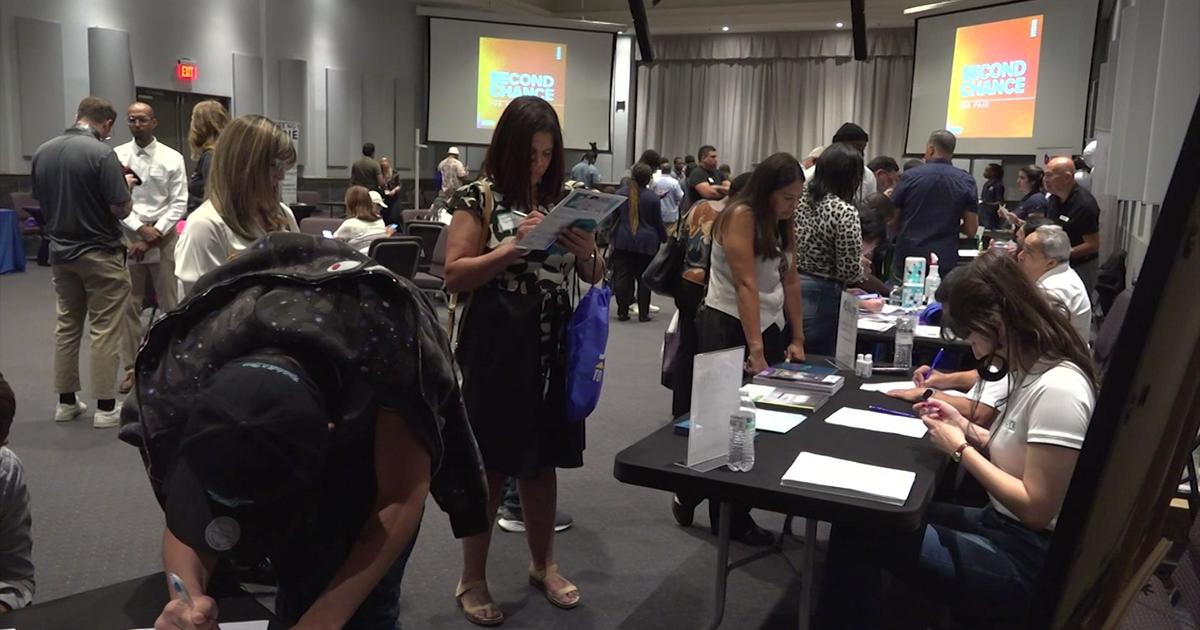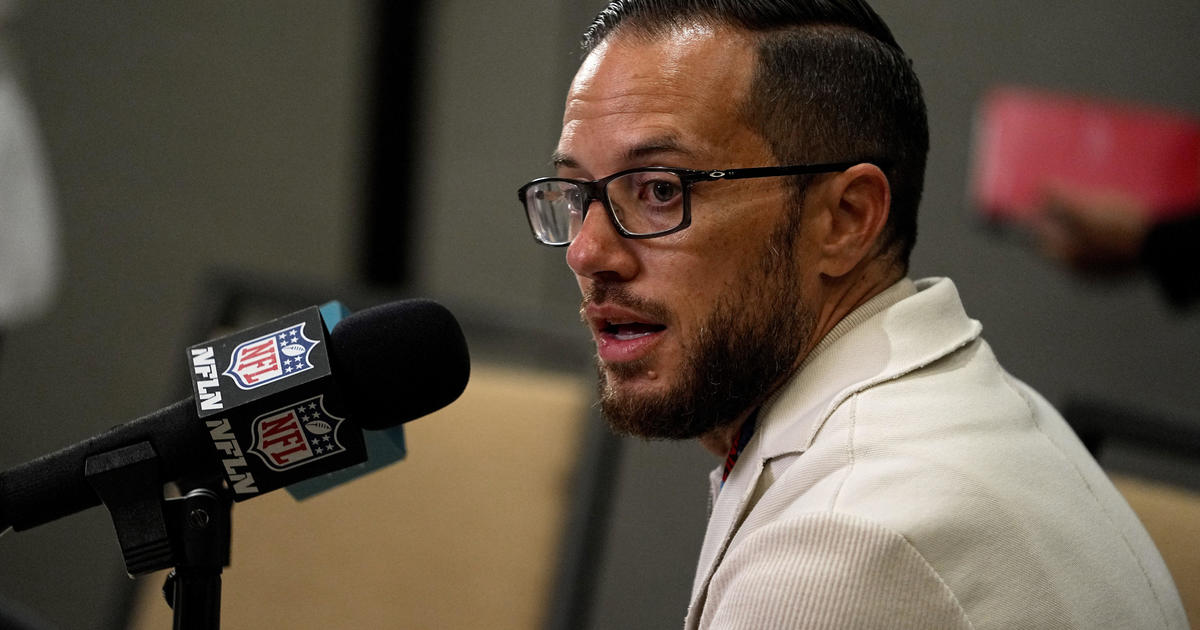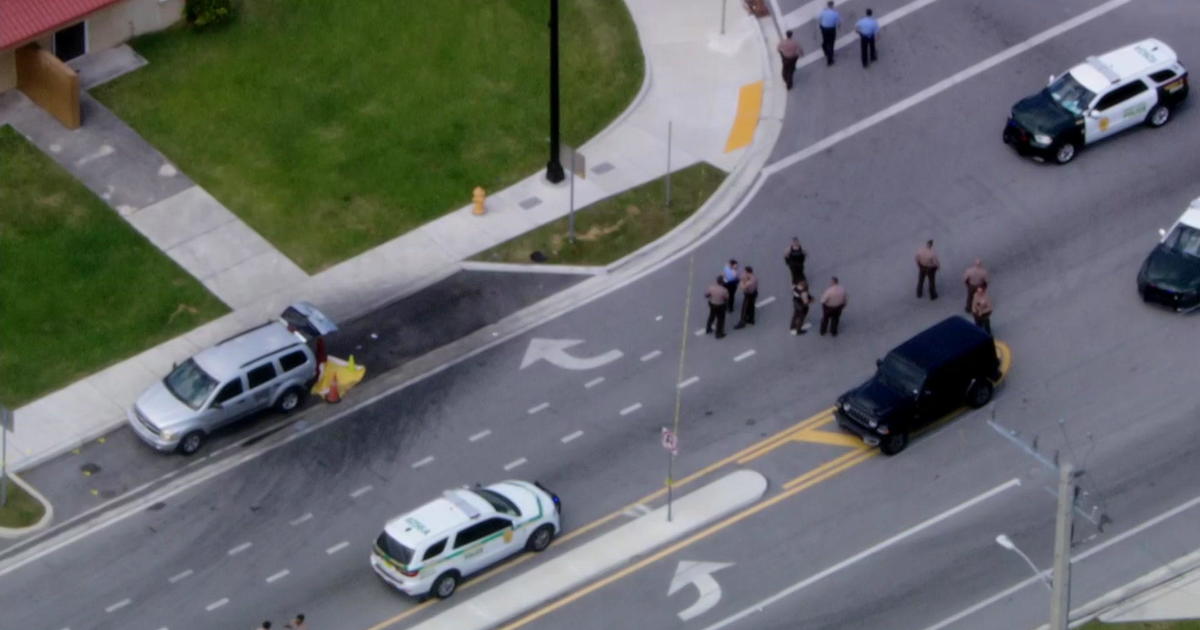I-Team: Farming Out Billions Of Dollars
A CBS4 I-Team investigation has uncovered troubling questions about how Billions of your tax dollars are spent in Farm Aid each year.
More than 5 Billion dollars went to aid American Farmers in direct Farm Bill payments last year. But the I-Team followed the money and discovered much of it is NOT going down on the farm!
Wait until you find out where and to whom it is going. And it is all legal and legit. The question is: is it good public policy?
CBS4 I-Team investigator Stephen Stock dug up the details you won't believe.
"This is where I grew up," Erik Tietig said.
Tietig and his mother have struggled to keep the family's south Miami-Dade plant nursery going during tough times and good times.
"The business really is a handful," Tietig said.
To help recover from damage left by Hurricane Andrew a decade ago, Tietig and his mother received 41 hundred dollars in federal farm aid in 2003 and 2004.
"It's nice to know that there is that kind of benefit there if you need it," Tietig said.
According to Federal Farm Bill experts and historians, Erik Tietig's family nursery stands as an example of the kind of farm the original federal farm bill was designed to help out.
"This is a tough business," organic fruit grower Dan Howard said.
Dan Howard is another example of a small farmer who could use federal farm aid.
More than a hundred thousand dollars in debt, Howard barely holds on to his organic fruit farm in Homestead with little help in from the government. In fact, he's only received disaster aid. And he's never received any direct money from Farm Bill.
"If I ever could come close to breaking even I'd quit so quick it ain't even funny," Howard told the I-Team.
Set up by Congress in the 1930's, historians say the farm bill was meant to make sure corn, soybean and other prices didn't fall below a set level in order to guarantee small farmers some type of income to help survive the depression.
But the CBS4 I-Team discovered that what was once a life-line meant to save the small, family farm has instead, grown like a weed into something much more.
Take Maurice Wilder as an example of what some say has gone wrong with the Farm Bill.
"I got into mobile home business," Wilder said referring to how he began making his fortune.
A self-made millionaire several times over, Maurice Wilder drives to work--not in a tractor, but a Rolls Royce.
Wilder works in a marble-lined office located in one of several high-end buildings he owns in the Tampa Bay area.
In fact, Wilder owns $500 million worth of property around Florida and the rest of the country.
Included among his real estate portfolio are more than a dozen RV parks, the Tampa Westin, a hunting lodge and a big chunk of Harbour Island in Tampa Bay.
"I really started buying farms as kind of a hobby," Wilder said.
It's a hobby that has netted him $3.2 million from you the taxpayer in the form of federal farm bill subsidies between 2003 and 2006. That's right all courtesy of you, the federal taxpayer.
All because Wilder also owns a dozen different farms in a half dozen states. And corn prices were low during that time that he got direct farm bill subsidies.
Wilder explained it this way: "Whether it was a big farmer or a small farmer I think any farmer at that time sure could use the subsidy payments," Wilder said. "And it was really it was welcomed by the farmer regardless of the size."
CBS4 investigator Stephen Stock asked Wilder "If you're investing in the farm, and you lose a little bit of money, isn't that the cost of doing business?"
"Well, I don't believe if we would have kept losing money like that we wouldn't have continued farming," Wilder answered.
Using United States Department of Agriculture data which was analyzed and distributed by the non-profit, Washington, D.C. based Environmental Working Group, the CBS4 I-Team discovered Maurice Wilder is the rule rather than the exception when it comes to spending Billions of your tax dollars on Farm Aid.
In fact, you would think that most if not all of your tax money that goes to the federal farm bill would go to people living and working on a farm.
But the CBS4 I-Team discovered that in South Florida only 19 farm bill recipients actually live and work on a farm.
Those 19 folks got, total, all of $125 thousand dollars in Federal Farm bill aid between 2003 and 2006. That's right all 19 recipients got a total of $125,286.
You'll never believe where the rest of farm bill recipients live! Nearly 600 of them live in the city!
All 557 of them received a total of nearly $16 Million. That's $15,967,558 in Farm Bill aid sent to folks living in the city!
Again, it's all legal. It is all legit. But critics say it is horrible public policy.
Take Laurie Berry for example. Berry is a semi-retired writer who lives and works at her home in Coral Gables.
"I am not the person who's risking everything," Berry said.
Berry and a cousin inherited a family farm in Arkansas.
Though she doesn't live on nor work a farm, Berry said she does buy fertilizer for those who do actually the farming.
Even so, according to the USDA Farm Bill data she and her cousin received more than 165-thousand dollars ($165,349) in federal farm subsidies between the years 2003 and 2006. Included in that amount was nearly 18 thousand dollars ($17,990) in direct farm bill payments.
CBS4 I-Team Investigator Stephen Stock asked Berry "So why should you get any of the money, the subsidy money?"
"Well, that's a good question," Berry answered. "I am materially involved to some extent, the fertilizer."
Then there's the person living here at an exclusive, gated home in Boca Raton. The USDA data shows she got $104,829 in total farm subsidies from 2003 to 2006.
And the guy who lives at Lincoln Road and Collins Avenue in Miami Beach. The USDA data distributed by the Environmental Working group shows he got $225,004 in total farm subsidies.
And the USDA data shows that $54,657 in farm subsidies went to the person who's listed address on Hibiscus Drive located on exclusive Hibiscus Island behind a security gate.
"This farm bill is wasteful is bloated," said the Environmental Working Group's Michelle Perez. She serves as senior policy analyst for the Environmental Working Group.
She and the EWG's president Ken Cook are highly critical of Congress and how it spends federal tax dollars through the Farm Bill.
"It's certainly not what the original intent of the farm bill was all about," Michelle Perez said.
"When you have millionaire landowners that receive tax payer dollars every year just because they own land, because they're wealthy enough to own farm land and they don't spend any time on the farm, they're not farmers, that's a system that's broken and needs to be fixed," Perez told the CBS4 I-Team.
"I got my first registered angus in '47," Leroy Baldwin said.
Baldwin and his father began the family farm nearly 75 years ago, raising Angus beef cattle.
Baldwin's children, grandchildren and great grandchildren have now followed in their footsteps working the family farm in Marion County.
Rarely, if ever, have they gotten federal farm aid.
Leroy Baldwin believes the Farm Bill has grown into a political pork program that is out of hand.
"It's just too bad that our country has gotten to that point," Baldwin said. "We need to go back to fundamentals and start over again."
Eric Tietig worries about the repercussions for those who actually work the land.
"I just hope that the people that are in it for the right reasons don't suffer because of the abuses of the few," Tietig said.
CBS4 Investigator Stephen Stock asked Maurice Wilder "Is it necessary for my tax dollars to go subsidize a large land owner like yourself?"
Wilder replied "I think it is if they're losing a lot of money."
Despite the questions, just last month Congress approved yet another multi-billion dollar farm bill package over-riding a veto by President George W Bush.
Critics say that serves as a clear sign the farm bill remains a hugely popular program that keeps on growing.
Stephen asked Leroy Baldwin about that. "Obviously it's popular?" Baldwin's reply was slow and measured. "I'm sure it is," Baldwin said. But he laughed "That don't make it right."
(© MMX, CBS Broadcasting Inc. All Rights Reserved.)



